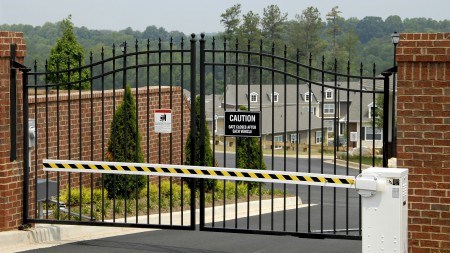Buying property in a gated estate in a country that is plagued by crime has certain attractions, but beware - the rules and regulations set by the homeowner association or body corporate may put a damper on your lifestyle.
Differences between a Home Owners’ Association a body corporate
There are differences between a Home Owners’ Association (HOA) and a body corporate, however, both lay down the rules of communal living and the rules and regulations governing the estate or scheme. It is highly advisable that these are thoroughly checked before a buying decision is made.
Most gated estates feature similar styled properties and there are usually strict rules governing what can be built, what colour the home must be and what architectural design the home must follow. There could also be rules in place concerning future extensions to the property and, generally speaking, permission must be sought and plans approved before any building can take place.
The rules will also state whether or not animals will be allowed on the premises, whether a business can be run from the property and may even go as far as insisting that the HOA vets potential tenants before a lease can be signed. If a vacant stand is being purchased, the rules will indicate the specific timeframe that the buyer has to build a home. The buyer should always be aware of what penalties will be charged if the home is not built during the time allowed.
Living in a gated community can save homeowners money. Securing an individual home can for example be an expensive exercise: however, the costs involved become far more affordable when homeowners pool money via a levy. Levies often include the price of water and the cost of electrifying the communal areas. Clubhouses and swimming pools are maintained by the HOA and again the costs are shared by all who live on the estate. For this reason it is imperative that the buyer confirms the amount of the current levy and checks what sort of increases the homeowners have had to face over the years.
However, all of the above can only function and be maintained if the financial health of the HOA is in good standing. Anyone buying into a gated community should ask to see the books before they sign an offer to purchase. Most HOAs have a few levy defaulters. However, it is important to ascertain what percentage of homeowners are in arrears and what policies the HOA has in place to collect the bad debt. The financial state of the estate is vitally important. Does the HOA have a contingency fund available to cover the costs of large projects?
It is fairly easy to ascertain how well the estate is being run by reading through the minutes of the trustees' meetings. Check to see what issues have come up and how these were resolved. Be wary of buying into an estate where there have long drawn out arguments between the residents and the HOA. While there will always be disputes between people living in an estate, these issues should be resolved with the minimum amount of fuss in the shortest time possible.
Benefits of living in a gated community
The benefits of living in a gated community speak for themselves and it is ideal for those who are willing to abide by the rules and live in harmony with others on the estate. Buyers who do their research and ensure that everything is in good standing and in good order before buying stand to make an extremely good investment that will benefit their entire family. On the other hand those that rush in without checking all the facts, could well end up paying for their mistakes for years to come in terms of money and irritation.


